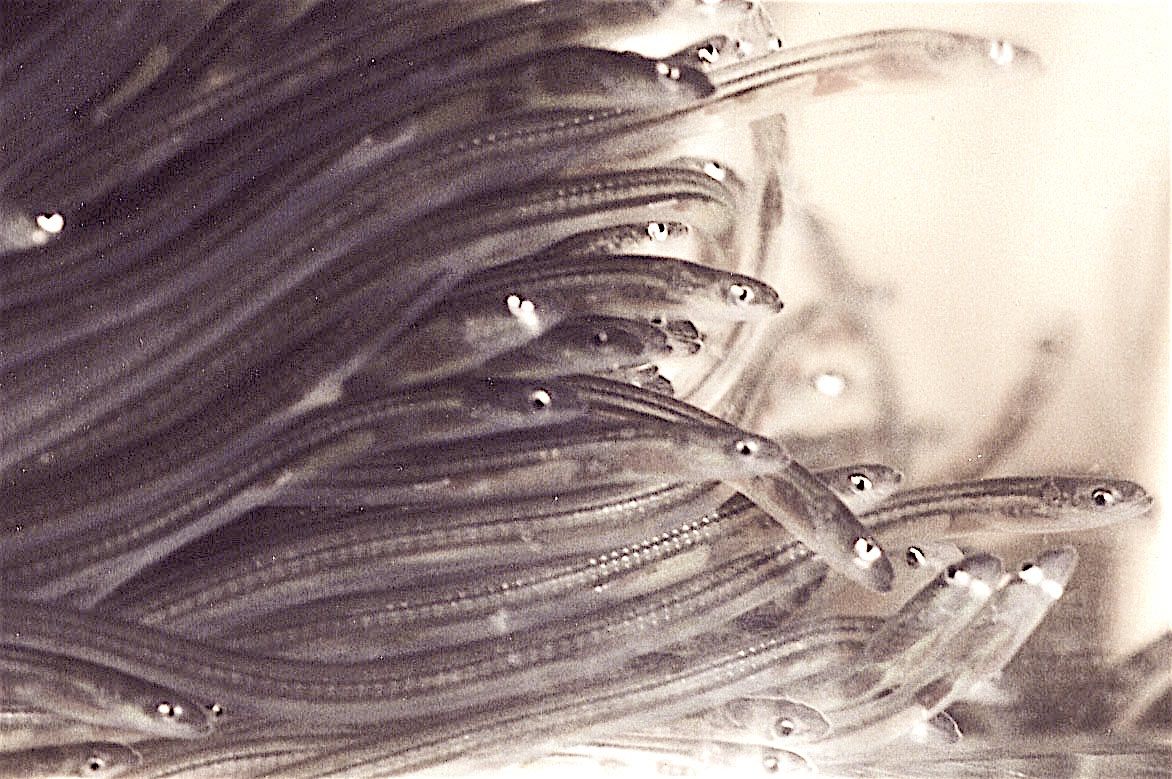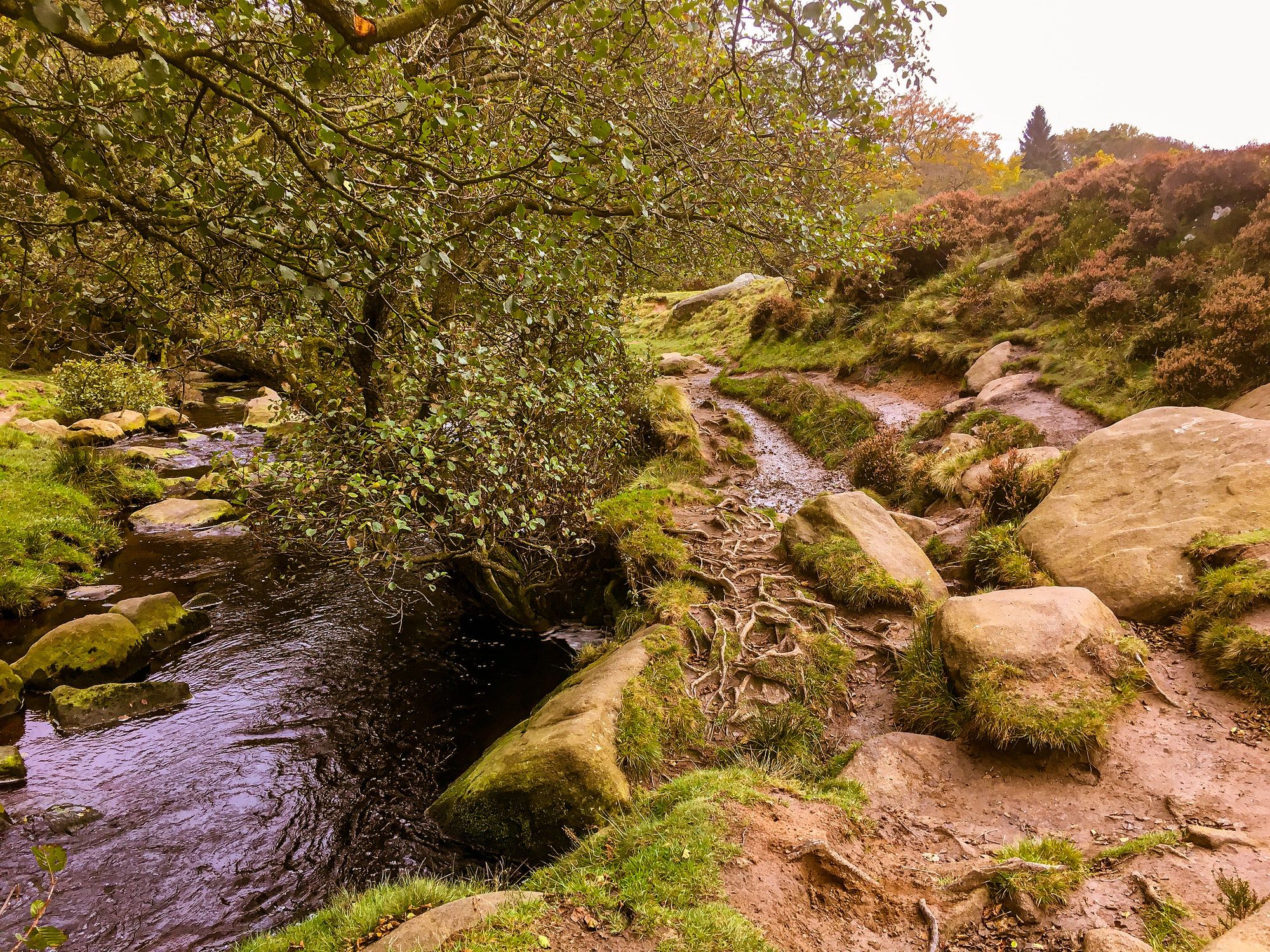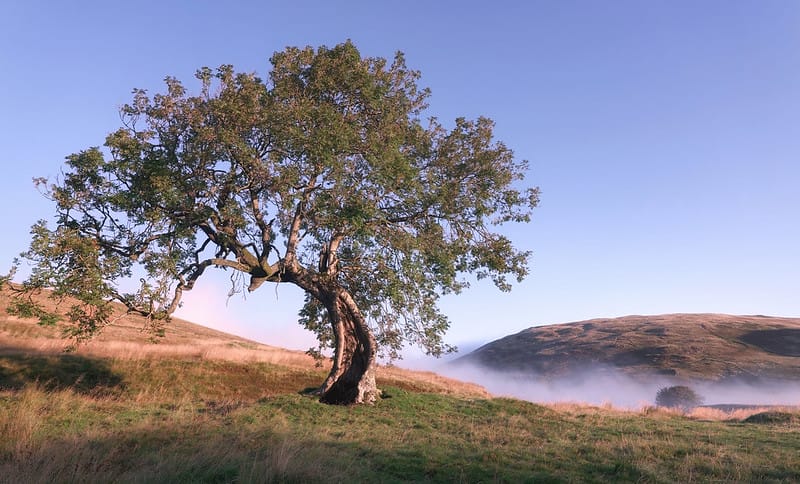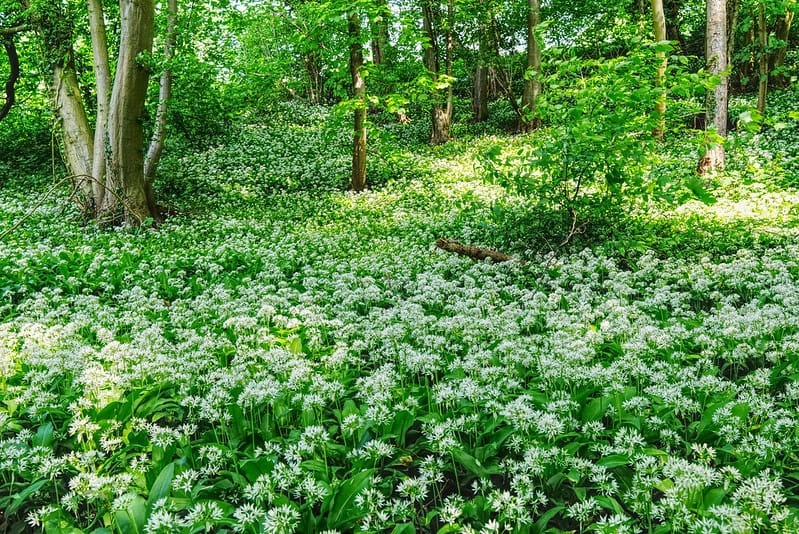
Government Chaos & Eel Mystery
The latest news on nature and conservation in Britain.
Thanks to all our subscribers for your patience while I took a few weeks off to have my baby. I'm delighted to say that our daughter arrived safe and sound a few weeks ago, and is the loveliest little creature that I've ever laid eyes upon.
Welcome to the world to my beautiful daughter, Clara. We've spent the last week wallowing in love (and sleeping, and not sleeping.) pic.twitter.com/2yKJDbur6f
— Sophie Yeo (@some_yeo) October 1, 2022
I'm still on maternity leave, and our usual newsletter editor Coreen Grant is still off representing Scotland in the rugby world cup. However, service will now resume as normal, thanks to super science journalist Sarah Wild, who will be taking the reins for the next few weeks. Follow her on Twitter!
This newsletter is normally sent to members only. If you want to subscribe, or re-subscribe, now that the weekly digest is up and running again, you can do so here. Our roundups of conservation news go out every Friday. A monthly subscription costs £5, with a discount available for those on a low income.
In other exciting news, the weekly digest won the Newsletter of the Year award in the Press Gazette Future of Media awards. The judges said: “Inkcap Journal has shown that high-quality coverage of a niche subject can quickly be turned into commercial sustainability on the newsletter platform.” I'm absolutely thrilled at this recognition, and so grateful to all the subscribers who made it possible.
Sophie Yeo
Editor of Inkcap Journal
National news
Government | Farmers in England are hopeful that the government will choose not to cut funding for nature-friendly farming initiatives, despite indications otherwise. Since the beginning of October, farmers and environmental organisations have feared that the government’s ongoing review of the Environmental Land Management Scheme (ELMS) will spell its demise, with the outcome expected to be published late next week. Truss’ instigation of the review, along with plans to scrap EU protections for nature and to relax development laws in new “investment zones”, was branded an “attack on nature” by the RSPB, the National Trust and the Wildlife Trusts. A feature in the Guardian describes how green-minded individuals, from NGOs to Conservatives to farmers, have been united in rage at this approach, noting that the current government’s failings on nature represent a great opportunity for the Labour party. Environmental campaigner Joss Garman has also written a helpful summary of recent climate and nature-related announcements from Westminster, in what he describes as “Truss’ bin fire of green tape”. Of course, with the prime minister’s resignation yesterday and the prospect of yet another new Conservative leader, environmental policies are again in disarray, with the Farmers Guardian noting that farming policy has been “plunged into uncertainty once more”.
'The farming community needs certainty about the way ahead. We cannot allow the current policy review being undertaken by Defra to go on any longer. A clear way ahead for farm policy is needed now' - @georgewdunn on Truss' resignation https://t.co/J6xaLMh3b0
— Abi Kay (@FGAbiKay) October 20, 2022
Bird flu | Defra has ordered British bird keepers to implement strict biosecurity measures following a sharp increase in cases of bird flu. The new Avian Influenza Prevention Zone legally requires bird owners to keep captive birds in fenced or enclosed areas, and to disinfect clothing, footwear and equipment after any contact. The government stopped short of requiring bird owners to bring their animals inside, a measure already in effect in Norfolk, Suffolk and parts of Essex. Out of 190 cases confirmed in the UK since October 2021, a sixth have occurred since the beginning of this month, marking a rise in infections in what is already Britain’s largest ever outbreak. The UK’s Chief Veterinary Officer, Dr. Christine Middlemiss, said the new measures are intended to keep Britain’s flocks safe, but she expects the number of cases to continue to rise in the coming months as migratory birds return to the UK. Also this week, the Scottish government confirmed cases of bird flu among small flocks of fowl in both Orkney and Lewis, which have since been isolated to prevent any further spread. The Times, the Telegraph, the Guardian and the BBC covered the news.
Irish Sea | Conservation and wildlife organisations have urged the nations of the Irish Sea to work together for its protection, reports the BBC. The sea is governed by Northern Ireland, Scotland, Wales, England, the Isle of Man, and the Republic of Ireland, each with its own marine policies and laws, making its management somewhat complex. A report by the Irish Sea Network, a partnership established in 2020, found that about a third of the sea is designated as some form of Marine Protected Area, but only 5% has full management in place and less than 0.01% is fully protected. It notes that the Irish Sea is “degraded with significant and widespread anthropogenic pressures present throughout”. The report is intended as a “stock check” on the sea, for use by decision-makers considering the management of marine activities in the area.
In other news:
- Conservative party MPs defeated a motion to ban fracking in the UK, Bloomberg reports, as did The Guardian and Reuters.
- The RSPB has elected Dr Amir Khan, an NHS doctor, author and resident doctor on Good Morning Britain, as its new president.
- UK conservationists have warned that butterfly sightings are “worryingly low”, despite the hot summer, and continuing to decline, BirdGuides reports.
- The UK’s national parks have entered into a £70 million private finance deal to fund the restoration of degraded peatland by selling carbon credits to corporations, the Times reports.
- Natural England and the University of Exeter have partnered to research environmental change, BirdGuides reports.
- CPRE has petitioned the government to increase Britain’s hedgerow network by 40% by 2050.
- National Drought Group experts warn that the UK’s drought may last beyond spring 2023.
- The head of the Woodlands Trust has warned that the government's investment zones could put the UK's ancient woodlands under threat, the Guardian reports.
Across the country
Somerset | The National Trust is undertaking work on its Holnicote Estate in Somerset to connect the River Aller to its original floodplain, helping to create a healthier and more biodiverse landscape. Following an initial pilot project in 2019, work is now being scaled up to cover 15 hectares, reports the BBC. The Independent notes that it is the first time a UK river has been rerouted in this way, with the outcome reflecting how the landscape would have looked in the past. Similarly, a £2m project to reconnect the Thames to the Chimney Meadows Nature Reserve is now complete, the Oxford Mail reported. The project, driven by the Berkshire, Buckinghamshire & Oxfordshire Wildlife Trust, created a 450-metre watercourse, aimed at re-establishing a naturally functioning floodplain habitat.
Lowestoft | The Suffolk Wildlife Trust has objected to plans to build a new McDonalds restaurant, including a drive-through facility, on land next to a nature reserve, the Eastern Daily Press reports. This will be the third McDonalds to have opened in the coastal town of Lowestoft in recent years; of the two already in existence, one closed last year. The proposed new development, on vacant land next to the wildflower-rich meadows and ponds of Gunton Meadow, “threatens to bring more disturbance, disruption and danger to the wildlife of this little oasis”, the Trust said. The Lowestoft Town Council's planning committee has recommended the application to East Suffolk Council, which will have the final say on the development.
East coast | The RSPB has submitted a bid to the Department of Culture, Media and Sport to have large swathes of England’s east coast declared a World Heritage Site. The area runs from the Humber estuary in Lincolnshire, through Suffolk, Norfolk, Essex, to the Thames in Kent. These wetlands support more than 150 different bird species and are also part of the East Atlantic flyway, one of the eight major routes in the world used by migrating birds, the BBC reports. The department will decide early next year whether to include the bid in the UK's Tentative List of Natural World Heritage sites, which will be submitted to UNESCO. If successful, the area would be added to a list of UN-designated sites in the UK that so far includes the Dorset and East Devon Coast and the Giant’s Causeway and Causeway Coast. The story was also reported in the Eastern Daily Press.
Elsewhere:
- Swans on the Norfolk Broads with symptoms of bird flu are to be euthanised, reports the BBC and the Eastern Daily Press.
- A new citizen science project, led by Trees for Life, will study the fortunes of reintroduced red squirrel populations in the Highlands.
- Experts have spoken out against plans to develop new homes on a wildlife haven in South Bristol, reports the Bristol Post.
- Leonardo DiCaprio has praised the osprey breeding programme run by the Leicestershire and Rutland Wildlife Trust, reports the BBC.
- A majority of councillors have voted for a Nature Emergency motion in Powys, reports the Shropshire Star.
- The barn owls of East Cleveland have had a great breeding year, according to the Tees Valley Wildlife Trust.
- The Gwent Wildlife Trust is opposing the construction of huge solar installations on the Gwent Levels.
- The Durham Wildlife Trust is opening a new nature reserve in Teesdale, known as Cuthbert’s Moor, reports the Chronicle.
- Anglian Water has been fined more than £1.2m for causing pollution in Cambridgeshire, Buckinghamshire and Northamptonshire, reports the BBC.
- Walkers in trainers – rather than tough hiking boots – have caused erosion on Ben Lomond in their efforts to avoid rockier terrain, reports the Herald.
- The future of Bibury Trout Farm, the oldest in the country, is threatened by drought, reports the BBC.
- The Times profiles efforts by farmers to create a 50-mile wildlife corridor through Sussex.
- The leader of Wiltshire Council has refused to commit to banning fracking in the county, reports the BBC.
- The RSPB is fighting plans for electricity pylons that would cut through Hintlesham Woods in Suffolk, a site of special scientific interest, reports the BBC.
- The Isle of Man's hen harrier population has stabilised, according to Manx BirdLife, reports BirdGuides.
- Numbers of rare waders, such as the curlew, are stable in parts of the Cairngorms, bucking the national decline, the BBC reports.
- Trentham Estate in Shropshire plans to reintroduce up to four beavers to the estate next year, the Shropshire Star and the Stoke Sentinel report.
- A Richmondshire District Councillor has flagged that the Tees, Swale and Ure Rivers are all polluted beyond legal limits, The Northern Echo reports.
- Lancashire County Council has secured £1.4m investment to restore peatlands, according to the Lancashire Telegraph, while the Northern Times reports that a new peatland restoration scheme is on the cards for Flow Country in Scotland.
- A rooftop forest, replete with a colony of stag beetles, is planned for the former Blackfriars Crown Court in Southwark, South London News reports.
Reports
30x30 | The UK government is not on course to protect 30% of the land and sea for nature by 2030, according to a new report by environmental coalition Wildlife and Countryside Link. In 2020, Boris Johnson pledged to protect a third of the UK for nature and biodiversity. However, in 2022, just over 3% of England’s land and 8% of its seas were protected – and that, since 2020, the government had only added 0.22% to the amount of protected land and “at most” 4% to its oceans. “Unfortunately, our figures show that in the race to halt nature’s decline by 2030, the Government is limping backwards,” said Richard Benwell, CEO of Wildlife and Countryside Link. The BBC and the Guardian covered the story.

Salmon | A report by charity WildFish has found that the Scottish farmed salmon industry is using reporting loopholes to cover up environmental harm and high levels of disease. Scottish law requires fish farmers to report weekly lice counts, but the report claims that industry is harvesting animals infected by sea lice instead of reporting the animals as diseased. “In doing so, the true picture of infestation levels and potential risk of spread to wild salmon and trout is being obscured,” the report finds. “This has profound repercussions for the health and survival of farmed and wild fish alike.” The Guardian contacted the companies implicated in the report, which dismissed the allegations.
Mental health | Nature projects bolster young people’s mental health, according to a learning paper of the Our Bright Future partnership. Led by The Wildlife Trusts and funded by The National Lottery Community Fund, the partnership involved 31 projects running from 2016 to 2021, which brought together the environmental and youth sectors. Projects ranged from practical environmental conservation to developing social action campaigns around environmental issues. In the evaluation, 86% of about 250 respondents reported that the programme had improved their mental health and wellbeing. Bringing together like-minded people, and fostering these relationships over time, explained why wellbeing appeared to be associated with longer-term engagement, rather than one-off interactions, according to the report. The Guardian covered the findings.
Science
Eels | Researchers have offered the first proof that European eels travel up to 10,000 kilometres to breed in the Sargasso Sea. While this has been suspected for almost 100 years, no one has previously found eggs or spawning adults there. Using satellite tags, the researchers, led by the Environment Agency, tracked 26 eels from rivers in the Azores archipelago for up to a year and followed them to their suspected breeding ground. Their efforts are recounted in a paper published in Scientific Reports. “Populations of the European eel are at a historic low and the more we understand their life-history, the better we are able to develop conservation measures to address the critical status of the species,” said Matthew Gollock from the Zoological Society of London. The Environment Agency said it would continue to research all life stages of the European eel to try and halt its decline. The BBC reported the findings.
Green space | Private gardens and natural spaces in neighbourhoods could reduce the life-year gap between rich and poor, according to a study published in the Journal of Epidemiology of Community Health. Researchers from the University of Glasgow mapped data from the 2016 Scottish Burden of Disease survey, namely life years lost, to land cover, combined with a measure of area income deprivation. They found that when natural space in a local area rose by 10%, early deaths among under-65s fell by 7%. Professor Rich Mitchell, who led the research, told the Times: “All else being equal, two areas with the same level of income deprivation but differing amounts of natural space are likely to have different levels of early death. The greener one is likely to have lower levels.” The Independent also reported the story.
Colonialism | Colonial empires spread alien plants around the world, ultimately shaping global biodiversity, according to research published in Nature Ecology and Evolution. Settlers often import non-native species for food, but also aesthetic and nostalgic reasons. Researchers traced the legacy of four European empires – the British, Spanish, Portuguese and Dutch – on the distribution of new plant species, finding that countries with a shared colonial past harboured similar alien flora. According to an opinion piece in the same journal, attempts to solve today’s biodiversity crisis necessitates grappling with such colonial legacies head on. “The next step is incorporating the traditional knowledge systems that have existed and the people who have maintained the biological diversity of most of the world for centuries into scientific discourse,” writes palaeontologist Nussaïbah B. Raja. The Times reported the story.
Driftwood
Quitting | In a comment piece in the Guardian, Claire Ratinon explains why (and how) she quit her London television production job to become an organic farmer. The food grower and writer said that “quitting crept up on me” rather than a hard and fast decision to throw in the corporate towel. In 2010, she travelled to New York and discovered Brooklyn Grange, a rooftop farm. Soon, her day job was something to endure so that she could spend the weekends harvesting, planting, and raking on the farm. Upon her return to London, she found jobs that were closer to the soil, from being a school gardener and beekeeping to growing salad leaves, before moving to a more rural area. She flags that growing food is “backbreaking, exhausting and painfully underpaid. I have sacrificed my bodily wellbeing at its altar many times, yet it remains the most important thing I’ve ever done.” Ratinon’s second book, Unearthed: On Race and Roots, and How the Soil Taught Me I Belong, was published earlier this year.
Dieback | A feature in the Guardian explores how ash dieback is ravaging the Warburg Nature Reserve in Oxfordshire. Over the next few decades, scientists expect that the UK could lose between 60% and 90% of its ash trees, similar to the losses that have already been suffered across Europe. However, Debbie Lewis, head of ecology for Berkshire, Buckinghamshire and Oxfordshire Wildlife Trust, which runs Warburg reserve, said that this is an optimistic estimate. “I think we will be lucky if 5% of the nation’s Ash trees survive this catastrophe.” The dead and fallen trees in Warburg are also becoming an expensive health and safety issue. In a feature in Inkcap Journal earlier this year, scientists and trust officials flagged that wherever possible land managers should leave dead and dying trees alone – their deadwood promotes biodiversity, and sickly trees that survive the fungus attack could hold the secret to resilience against the disease.
Economics | Chair of Natural England Tony Juniper has dismissed the idea that economic prosperity can only come at the expense of nature. “Far from being a block to economic development, it is increasingly clear that functioning natural systems are a vital prerequisite for it,” he told a joint event by Natural England and Green Alliance earlier this week. “The simple fact is that Nature is vital for our health, wealth and security. We can’t do without it.” Juniper details the ways in which supporting nature is a smart business decision: peat bogs filter clean water into British rivers, valued at up to £888m per year; and bees and other insects help secure a £120bn farming industry. However, he also throws his hat in with Prime Minister Liz Truss’ unpopular investment zones initiative, which “if set up in an intelligent and integrated way, could allow Nature recovery to be planned into development at an early stage”.
Further reading:
- The Environment Agency and Natural England have published mapping tools to gauge the extent of seagrass and saltmarsh in England.
- England has some of the fastest eroding coastline in Europe, and communities need to learn to live with it, reports Hull Live.
- Bonfire nights are dangerous for wildlife that likes to live in log piles and compost heaps. FrogLife has some advice to avoid casualties.
- An article in the BBC explores the graveyard of plastic waste on the bed of The Thames.
- In a Q&A with Butterfly Conservation, PhD candidate Jamie Wildman explains how he got into conservation and why we need to understand species to save them.
- This gardening column in the Guardian waxes lyrical about the benefits of coppicing in your garden – which appear to be manifold.
- In an iNews article, author Matthew Yeomans explains how the creation of a National Forest for Wales inspired him to walk 300 miles and combat his anxiety.
- In the Independent, Harry Cockburn pays tribute to forests, detailing how we’ve lost touch with them, and how people are fighting to recreate that connection.
- Caroline Lucas, the Green Party MP for Brighton Pavilion, claims that trespassing could improve the environment and make people healthier.
- In an interview with The Times, Wilding author Isabella Tree laments that prime minister Liz Truss’ government threatens a decade of environmental progress.
Happy days
Knitting | The weather is turning cold and knitting needles are out in force as the demand for scarves, socks and booties rises. In an effort to offer a reprieve from the monotony of winter apparel, the Yorkshire Wildlife Trust has published a new knitting pattern for a bittern, known as the Knittern pattern. The pattern can be downloaded from the Trust website, in exchange for donations towards the Trust’s Wilder Wetlands campaign. But the fun doesn’t end there. Knitters are encouraged to send the Trust colour photos of their completed knitterns by 9 January, to compete in a competition to crown the favourite knittern. All entrants will be invited to Potteric Carr nature reserve for a knittern exhibition.
Subscribe to our newsletter
Members receive our premium weekly digest of nature news from across Britain.
Comments
Sign in or become a Inkcap Journal member to join the conversation.
Just enter your email below to get a log in link.








